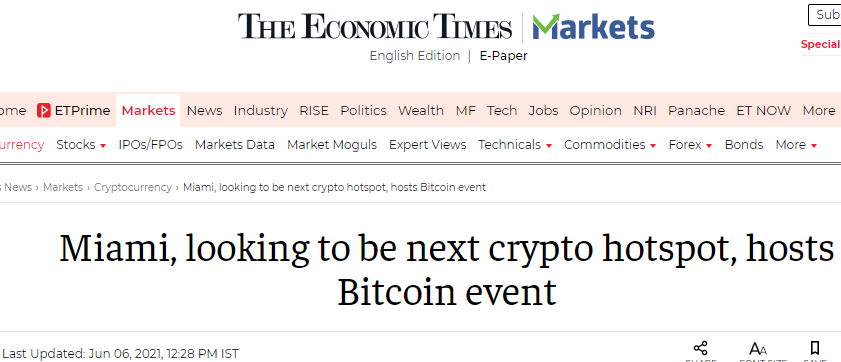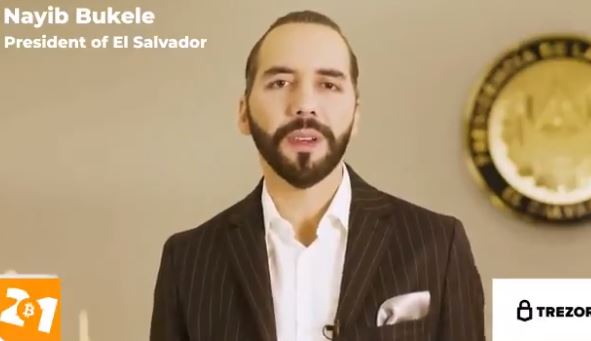
We’d like to wish a very warm welcome to all the new subscribers who I had the pleasure of meeting in Miami this last week.
Very glad to report the trip was a smashing success on so many levels, not just for me, but for many of you who attended, and even the city of Miami, which has made great strides toward becoming a crypto hub with the help of Mayor Francis Suarez.

From waiters to Uber drivers, a bouncer at the nightclub and even a lady selling tchotchkes at the mall, most locals I met on the ground seemed to be somewhat familiar with cryptocurrencies, and many of them are hodling.
Further, several people who were visiting from out of town mentioned that they were considering moving there to join the growing tech scene and enjoy the weather.
Case in point, my former employer eToro is now preparing a new office in Miami ahead of their upcoming public stock listing.
It’s extremely difficult for anyone witnessing such vibrancy to remain bearish on the industry, especially given the revelations that happened there.
Welcome El Salvador!

According to this El Salvadorian redditor, President Nayib Bukele is a widely popular progressive who is responsible for abolishing the previous corrupt government.
Not only does Bukele have a mandate from the people, but he also enjoys a supermajority in the nation’s legislative body, and with it the power to pass bills.
So this proposed legislation has a very good chance of gaining approval in the coming weeks. Will be interesting to see the details as they emerge.
In my mind, this news is probably more significant for the citizens of El Salvador than it is for Bitcoin itself.
Sure, it will be a great test case for nation states looking to embrace blockchain, but for a country that largely relies on the U.S. dollar to suddenly shift to a more friendly, immutable and borderless currency, it could be amazing for the local economy.
They won’t be the first country to recognize bitcoin as currency, however. After all, Japan came out with a very similar announcement when they approved legislation in 2017 recognizing bitcoin as legal tender.
Now that was huge for the industry, and it had a hugely positive impact on bitcoin and crypto, until the infamous Coincheck hack in January 2018 that kind of killed it for many everyday Japanese investors.
The loss of 523 million NEM tokens (worth more than $500 million at the time) was just too much for the market to handle, and in my mind, that was a huge contributing factor to the ensuing crypto winter.
Of course, once the money was lost, it was irrelevant that the Japanese were not taking advantage of self-custody and instead were trusting a centralized exchange with their wealth.
Something tells me that in El Salvador, things will be different, and this experiment will only end well in the long-term.
